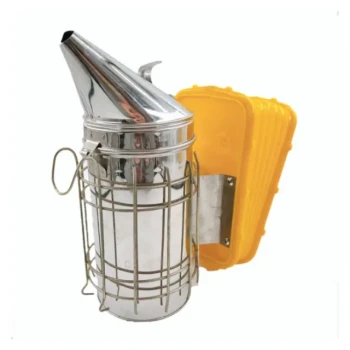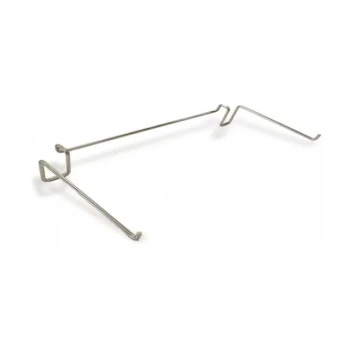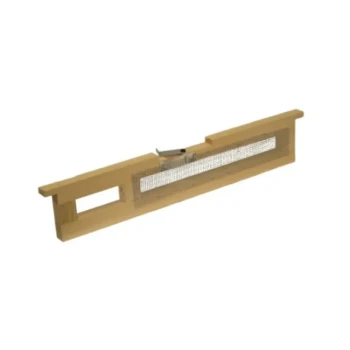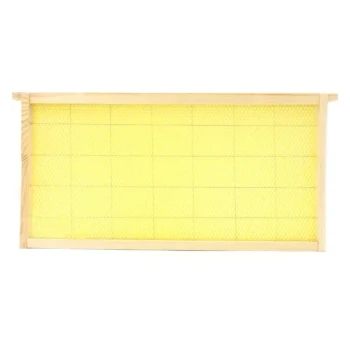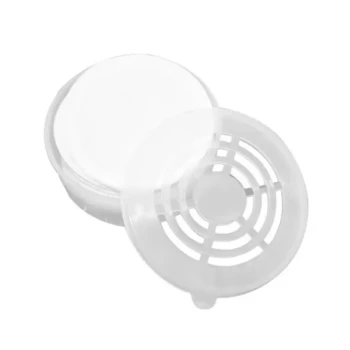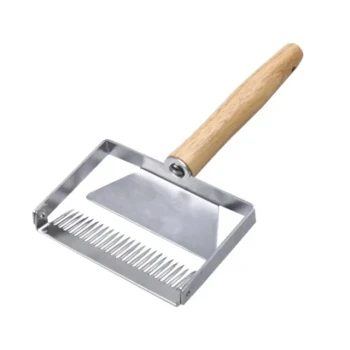At its core, a bee suit is your primary barrier against stings. This protective clothing is indispensable for beekeeping because it provides a physical defense against a colony's natural protective instincts. By minimizing the risk of painful stings, a bee suit allows you to work calmly and confidently, transforming a potentially stressful interaction into a focused and enjoyable task.
While preventing stings is the obvious function, the true importance of a bee suit is how it empowers the beekeeper. It grants you the peace of mind to focus on the health of your hive rather than on your own personal safety.
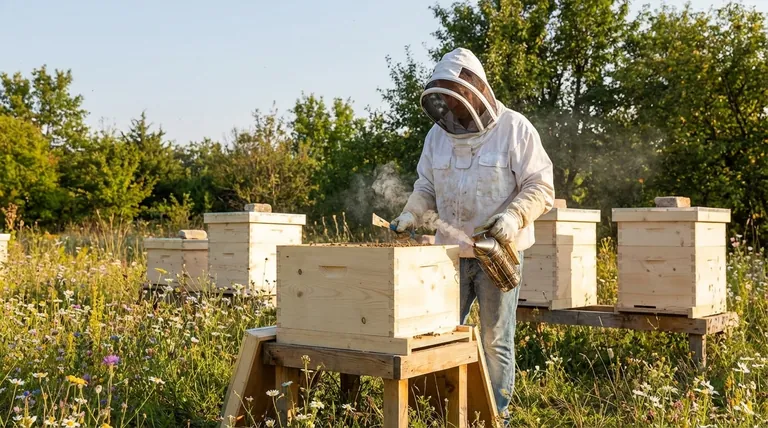
The Fundamental Role of Protective Gear
A bee suit serves two critical functions: one physical and one psychological. Both are essential for effective and responsible beekeeping.
A Barrier Against Defensive Stings
Bees sting when they perceive a threat to their colony. Protective clothing acts as the first and most effective line of defense against this behavior.
The thick material of a suit or jacket prevents a bee's stinger from reaching your skin, which is crucial for avoiding pain and potential allergic reactions.
Enabling Calm and Focused Work
When you are not worried about being stung, your entire demeanor changes. You can move with more deliberation and focus entirely on the task at hand, such as inspecting the queen or checking for pests.
This calm confidence is beneficial for both you and the bees. Slower, more predictable movements are less likely to alarm the colony, creating a safer environment for everyone.
Protecting Your Most Vulnerable Areas
The most critical area to protect is your head and face. A sting near the eyes, nose, or mouth can be especially dangerous and painful.
For this reason, a beekeeping veil is considered the absolute minimum piece of protective equipment, even for the most experienced professionals.
Understanding Your Protection Options
Protective gear is not one-size-fits-all. The right choice depends on your experience, the temperament of your bees, and the task you are performing.
The Full Bee Suit (Maximum Security)
This is a one-piece coverall that protects you from your ankles to your wrists, typically with a built-in veil.
Full suits offer the highest level of protection and are highly recommended for beginners. This allows new beekeepers to learn how to handle bees and gauge their tolerance for venom with maximum safety.
The Beekeeping Jacket (Balanced Protection)
A beekeeping jacket provides protection for the entire upper body and almost always includes an integrated veil.
This is a popular choice for beekeepers who want substantial protection for quick hive inspections without the hassle of a full suit.
Gloves and Footwear (Completing the Barrier)
Gloves protect your hands, which are in closest contact with the bees. Thick gloves offer more protection, while thinner nitrile gloves provide greater dexterity.
Heavy-duty boots are also recommended to prevent bees from crawling up your pant legs and stinging your ankles.
Understanding the Trade-offs
Choosing your gear involves balancing safety with comfort and mobility. There is no single perfect solution for every situation.
Protection vs. Dexterity
A full suit with thick leather gloves offers unparalleled protection, but it can be hot and cumbersome, reducing your sense of touch and fine motor skills.
Working with less gear, like just a veil and nitrile gloves, increases your dexterity and comfort but also significantly increases your risk of being stung.
Experience vs. Equipment
New beekeepers benefit from the confidence that maximum protection provides. It creates a forgiving environment for learning.
As beekeepers gain experience and learn to "read" their bees, they may opt for less bulky gear. However, even the most docile hive can have a bad day, making it wise to always have full protection available.
Cleanliness and Contamination
An often-overlooked benefit of a dedicated bee suit is that it helps maintain a clean apiary. By changing into your suit, you avoid introducing dirt, scents, or other contaminants from your street clothes into the hive environment.
Making the Right Choice for Your Goal
Your selection of protective gear should be a deliberate decision based on your specific needs and comfort level.
- If you are a new beekeeper: Start with a full-body bee suit to maximize safety and build your confidence without the fear of stings.
- If you are an experienced beekeeper performing quick inspections: A beekeeping jacket with a built-in veil often provides the right balance of protection and convenience.
- If your primary focus is working with an extremely docile colony: You must, at a minimum, use a veil to protect your face and eyes from unpredictable bee behavior.
Ultimately, the right bee suit is the one that allows you to manage your hives safely, effectively, and with confidence.
Summary Table:
| Protection Option | Best For | Key Features |
|---|---|---|
| Full Bee Suit | Beginners; Maximum Security | Full-body coverall with integrated veil; ideal for building confidence. |
| Beekeeping Jacket | Experienced Beekeepers; Quick Inspections | Protects upper body with integrated veil; balances protection and convenience. |
| Veil (Minimum) | Experienced Beekeepers; Docile Hives | Essential protection for the face and eyes; critical even for professionals. |
Ready to Equip Your Apiary with Confidence?
As a trusted wholesale supplier to commercial apiaries and beekeeping equipment distributors, HONESTBEE provides the durable, professional-grade protective gear you need for safe and efficient hive management. Our range of bee suits, jackets, and veils is designed to meet the demands of high-volume beekeeping operations.
Let's discuss your specific needs and how our wholesale solutions can support your business.
Contact HONESTBEE today for a quote!
Visual Guide
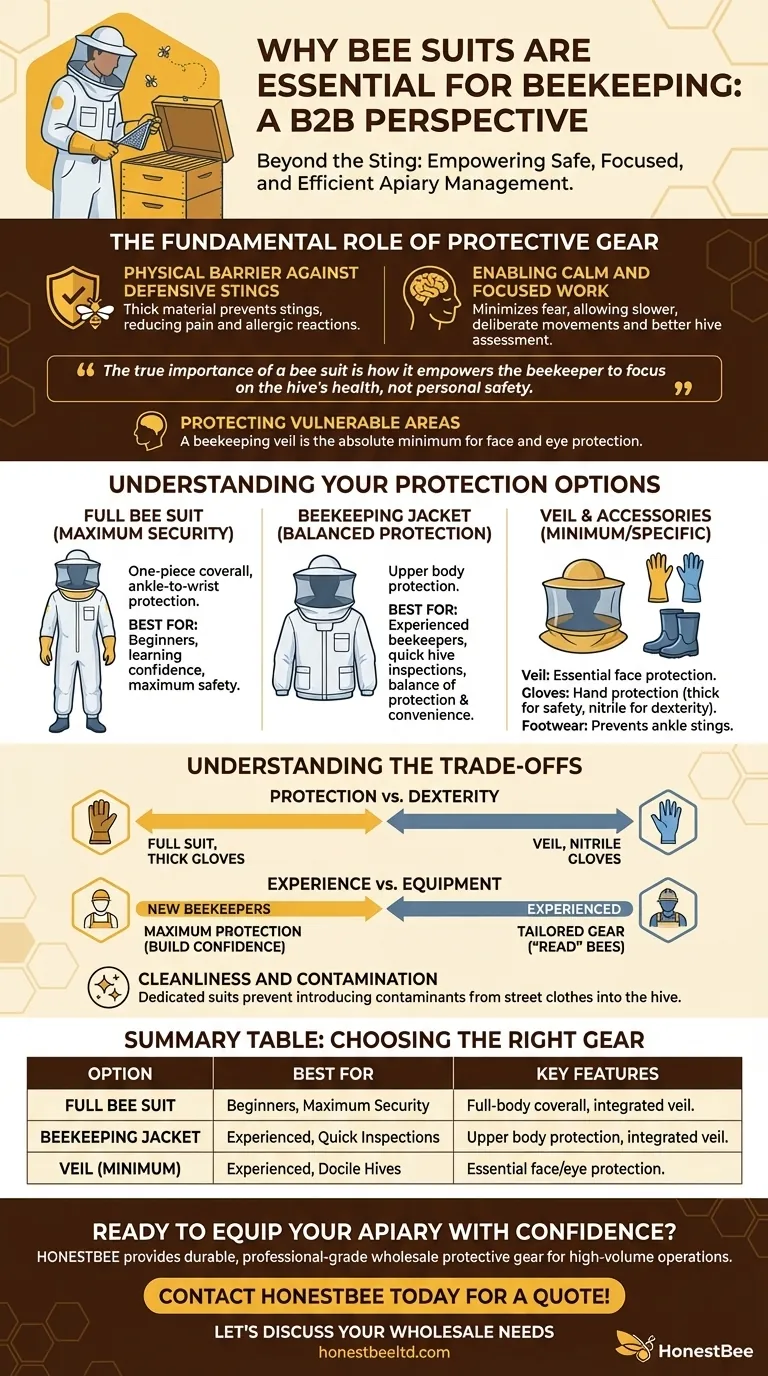
Related Products
- Wholesales Dadant Size Wooden Bee Hives for Beekeeping
- Long Langstroth Style Horizontal Top Bar Hive for Wholesale
- Automatic Honey Flow Beehive 4 Frame Mini Hive for Beekeeping
- Professional Insulated Winter Hive Wrap for Beekeeping
- Professional Bee Smoker with Elongated Spout and Durable Bellows for Beekeeping
People Also Ask
- Are there eco-friendly and sustainable options for bee suits? Choose Durable, Green Gear for Your Apiary
- What are the key features of a high-quality beekeeping suit? Expert Guide to Sting-Proof Protection
- How does a ventilated suit balance sting protection and comfort? The Science of Cool, Safe Beekeeping
- Why is the use of modern beekeeping protective gear and consumables essential? Enhance Safety and Harvesting Efficiency
- What are the recommendations for clothing color and material when working with bees? Expert Apiary Safety Guide
- What are the pros and cons of wearing a full beekeeping suit? Optimize Safety and Comfort in Your Apiary
- Why are professional protective gear and honey harvesting tools essential? Build a Safe, Scalable Beekeeping Operation
- What role do beekeeping protective gear and disinfection equipment play? Prevent Pathogen Transmission & Save Apiaries




